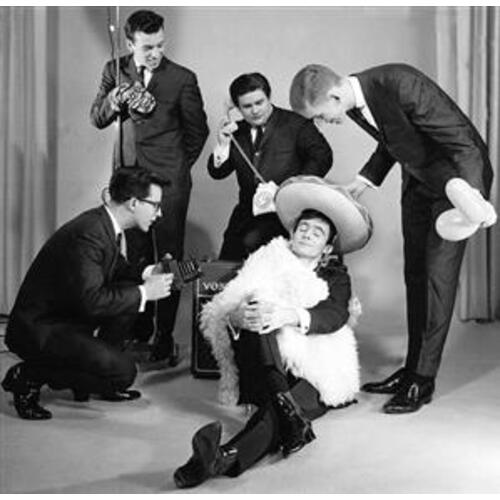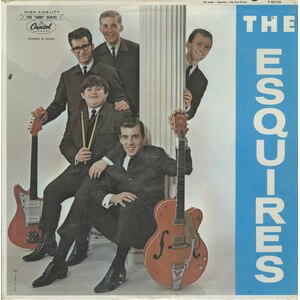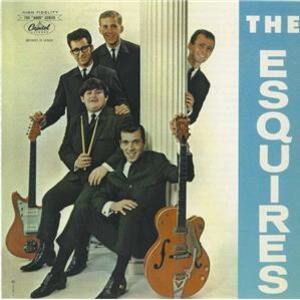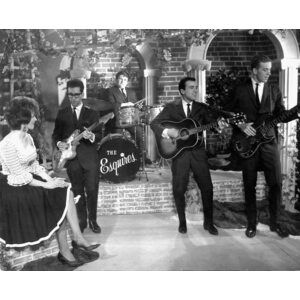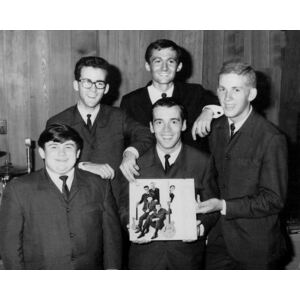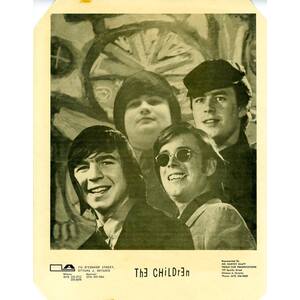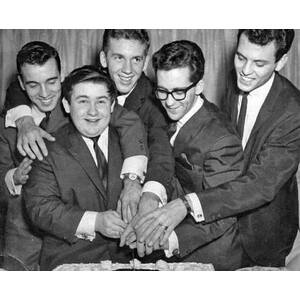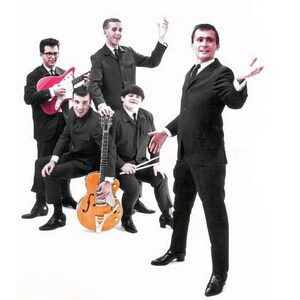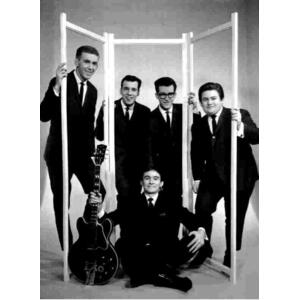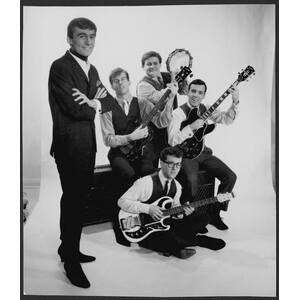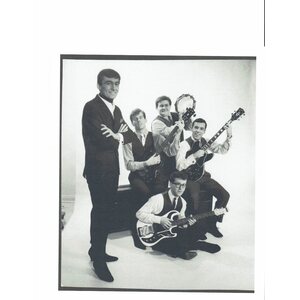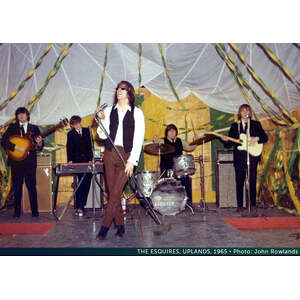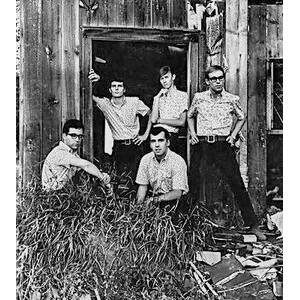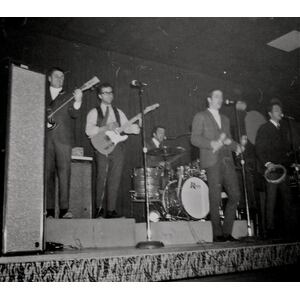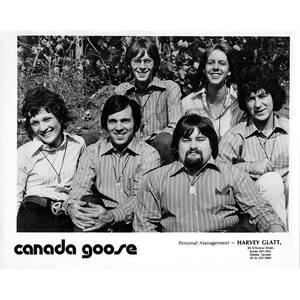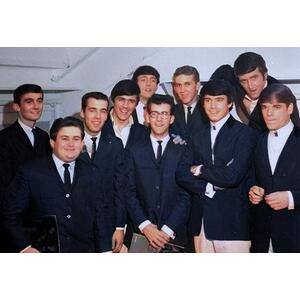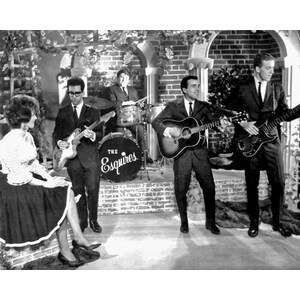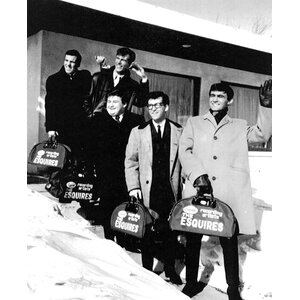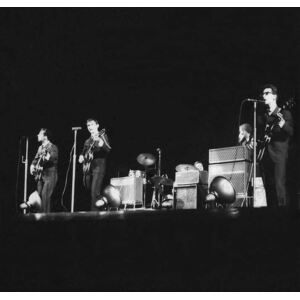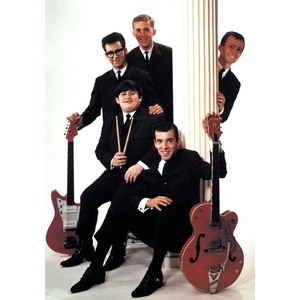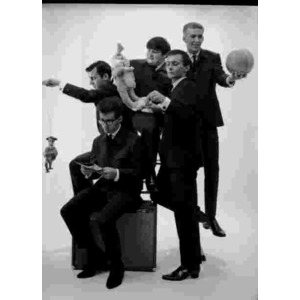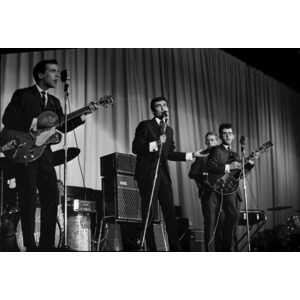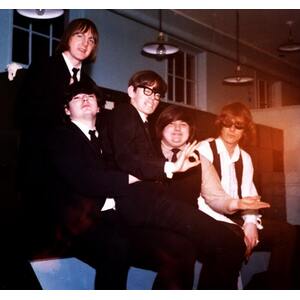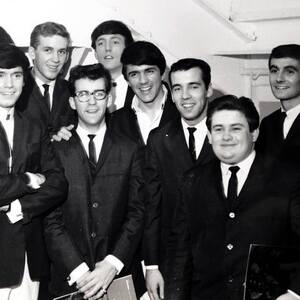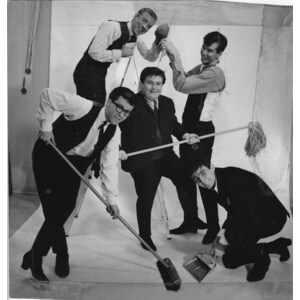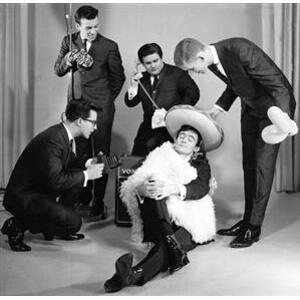Esquires
Websites:
https://www.facebook.com/garycomeau2020/, https://www.facebook.com/esquiredonofKingston, https://citizenfreak.com/artists/100426-norman-don-the-other-four
Origin:
Ottawa, Ontario, 🇨🇦
Biography:
Formed in Ottawa in 1962, the Esquires were among the most important early architects of Canadian rock and pop music, helping establish a professional infrastructure for domestic artists at a moment when the British Invasion was transforming the international charts. Drawing heavily on the instrumental sound of Cliff Richard and the Shadows, the group quickly distinguished itself through disciplined musicianship, sharp arrangements, and a growing local following that soon extended well beyond the capital.
The band was co-founded by guitarist Gary Comeau and bassist Clint Hierlihy while both were still in high school. They were joined by rhythm guitarist Paul Huot and drummer Richard Patterson, with vocalist Bob Harrington fronting the group during its earliest phase. Initially focused on instrumentals, the Esquires developed a polished stage presence and became regular performers at high-school dances, teen clubs, and Ottawa’s Pineland Pavilion, where they served as the house band beginning in 1963. Their reputation grew rapidly, aided by enthusiastic local press and frequent television appearances.
That same year, the Esquires were invited to appear on a Dick Clark all-star show in Montreal, backing singer Andy Kim and sharing the bill with major American acts. Capitol Records representatives in attendance soon signed the group, making the Esquires the first Canadian pop group to secure a major-label recording contract. Their debut Capitol single, a cover of the Shadows’ instrumental “Atlantis,” reached number one in Ottawa in 1963, followed by the similarly successful “Man from Adano.” Capitol, impressed by the group’s radio reception, rushed the Esquires into the studio to record their debut album.
As the British Invasion gained momentum in 1964, the Esquires were ideally positioned to benefit. Their clean-cut image, tight musicianship, and Shadows-influenced guitar work aligned naturally with the era’s dominant sound. They toured extensively, opening concerts for the Rolling Stones, the Beach Boys, the Dave Clark Five, Roy Orbison, and other visiting stars, while continuing to headline shows across Canada.
A key turning point came with the arrival of singer Don Norman, who replaced Harrington following the early Capitol singles. Norman’s strong, Cliff Richard–influenced voice shifted the Esquires decisively toward a vocal-driven format with harmonies, expanding their appeal beyond instrumentals. Reflecting on the change, Gary Comeau later wrote that with Norman in the lineup, “it turned into a vocal band with harmonies,” a transformation that led directly to the group’s biggest hit.
That hit was “So Many Other Boys,” released in 1964 and sung by Norman. The single climbed to #9 on the RPM national chart in January 1965 and cemented the Esquires’ status as one of Canada’s leading homegrown acts. Industry columnist Bob McAdorey famously noted Capitol’s surprise at the record’s success, recalling how the Esquires defeated major British acts on Toronto radio’s Battle of the New Sounds. The band’s momentum was further recognized when they won Top Vocal Instrumental Group at the inaugural RPM Awards — a precursor to the Juno Awards.
The Esquires’ debut LP, Introducing the Esquires, released in August 1964 and recorded at RCA Victor Studios in Montreal, captured the band at its peak. Produced by Clint Hierlihy, the album blended Shadows-style instrumentals, vocal pop, and rhythm-and-blues material, showcasing both Norman’s vocal range and the group’s instrumental precision. It remains one of the defining Canadian albums of the mid-1960s.
Despite their success, internal tensions and shifting musical priorities began to strain the group. Norman’s departure in 1965 was abrupt and contentious, later described by him as an ambush that left him suddenly outside the band he had helped elevate. His exit marked the beginning of a turbulent period for the Esquires, who continued briefly with Columbia Records and a rotating lineup that included several future notable musicians, among them Bruce Cockburn.
By 1967, the Esquires had disbanded, their brief but influential run complete. In the years that followed, their legacy only grew. Archival film footage discovered in the early 1990s — showing the original lineup performing “Man from Adano” in a studio setting — came to be regarded as one of the earliest Canadian music video prototypes, reinforcing the group’s reputation as pioneers.
The Esquires reunited in 1987 for a one-off benefit concert for the Children’s Hospital of Eastern Ontario, with the City of Ottawa officially proclaiming the day “Esquires Day.” Their recordings have since been reissued and reassessed, and the band is now widely recognized for opening doors at a critical moment in Canadian music history — not only as hitmakers, but as trailblazers who proved that Canadian rock and pop records could compete on a national stage.
-Robert Williston
Lineups
1962–1963 (original formation)
Gary Comeau: lead guitar
Clint Hierlihy: bass
Paul Huot: rhythm guitar
Richard Patterson: drums
Bob Harrington: vocals
1963–1965 (Capitol Records era / peak lineup)
Don Norman: lead vocals, guitar
Gary Comeau: lead guitar
Clint Hierlihy: bass
Paul Huot: rhythm guitar
Richard Patterson: drums
1965–1966 (post-Norman transition / Columbia period)
Gary Comeau: lead guitar
Clint Hierlihy: bass
Paul Huot: rhythm guitar
Richard Patterson: drums
Brian Lewicki: vocals
Douglas Orr: guitar
John Cassidy: guitar
1966–1967 (final rotating lineups)
Gary Comeau: lead guitar
Clint Hierlihy: bass
Paul Huot: rhythm guitar
Richard Patterson: drums
Mike Argue: vocals
Ted Gerow: vocals
Robert Coulhart: vocals
Bruce Cockburn: guitar
1987 (25th Anniversary reunion)
Don Norman: vocals
Gary Comeau: lead guitar
Clint Hierlihy: bass
Paul Huot: rhythm guitar
Richard Patterson: drums
Brian Lewicki: vocals
